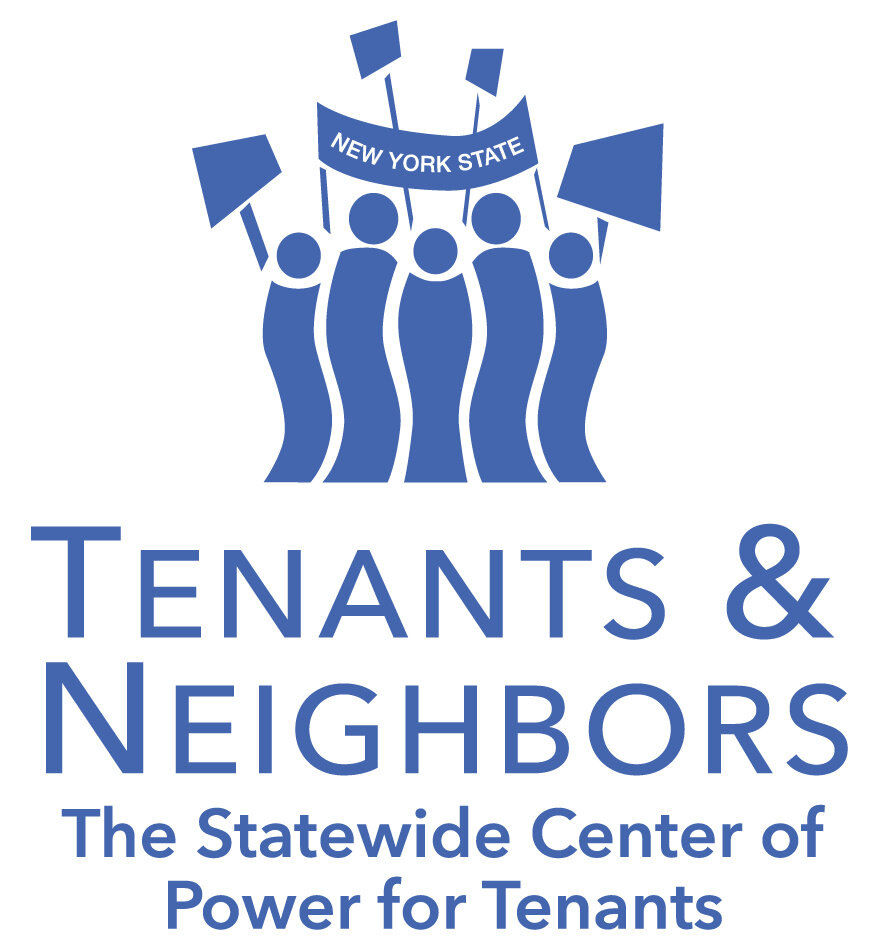What You Need to Know About New York’s Good Cause Eviction Law
On April 20, 2024, a new law went into effect that protects some tenants from huge rent increases and requires a landlord to have a good reason for evicting a tenant.
Who does the new law protect?
You are covered by the new law if:
You do not live in a condo or co-op building.
Your building was built before 2009 and was not substantially rehabbed after 2009
You live in a building with eleven or more apartments.
If you live in a building of 10 units or less you may still be covered but your landlord would have to own another building or buildings.
Your landlord does not live in your building.
Your rent is under 245% of the Fair Market Rate by HUD:
Studio: $5,846
1 BR: $6,005
2 BR: $6,742
3 BR: $8,413
4 BR: $9,065
You do not live in your apartment as part of your employment agreement.
You do not have a holdover case against you that was started before April 20, 2024.
Do these protections apply to anyone else?
Yes. Many tenants in New York City already have the rights found in this new law. If you are rent regulated, living in a NYCHA development, or a federally subsidized or affordable development, your landlord can only evict you for a good reason and there are limitations on how high your rent will increase. Because you already have protections, you are not covered by this new law.
Does the new law apply to small landlords?
No. The law does not cover small landlords. A small landlord is defined as a landlord who owns 10 or fewer units of housing. A unit or housing is an apartment or a single-family house. You can find how many apartments and houses your landlord owns https://whoownswhat.justfix.org/en/
If your landlord lives in your building and the building has 10 units or less, you are not covered.
What new rights do you have?
Rent increases have been limited.
New rent increases can be between 5% and 10% based on a formula that takes into account inflation. This is called the reasonable rent increase. The state housing agency will have to publish each year’s reasonable rent increase by August. This year we think the number is 8.5%.
These new rules about increases went into effect on April 20, 2024. If you are offered a new lease after April 20th with an amount higher than 8.5%, you should tell your landlord there is a new law.
Landlords can increase the rent more than the reasonable rent increase but they must explain why and must point to increases in their costs or substantial repairs they did to the apartment or building.
If your landlord increases your rent to more than the reasonable rent standard, it is a defense to a non payment of rent case that your rent was set higher than the reasonable rent increase.Landlords must show "good cause" to evict you.
Before this law, unregulated tenants could be evicted at the end of their lease. Many tenants do not have leases, they are month to month tenants. Month to month tenants could be evicted if their landlord gave them a notice telling them to get out. Landlords did not have to give a reason to evict. Tenants who paid rent and followed the rules were evicted without any reason given.
Now if you are covered by the law, you can be evicted for the following reasons:
Non-payment of rent
Violating a substantial obligation of your lease by:
operating a business out of your apartment
making alterations to your apartment without permission
using appliances such as washing machines that are prohibited in your lease
Failure to provide reasonable access to your apartment for repairs or for your landlord to show the apartment for rent or sale.
Being a nuisance or illegal activity:
selling drugs
constant noise coming from the apartment
violent behavior
cluttering your apartment to the point that it is a hazard
paying your rent late on a chronic basis
Limited landlord actions
owner-use (landlord is seeking the apartment for personal use, or that of a family member)
landlord taking the apt off the market
the whole building being torn down
Failure to sign a lease renewal
Will I be notified if these news protections apply to me?
Yes. Your landlord will have to give you information so that you know if you are covered by this law. These notices will have to be included in your leases and in any court notices or papers.
If your landlord says that you are not covered by this law because he is a small landlord, your landlord has to tell you what other buildings he owns and what their addresses are. If your landlord is an LLC or a corporation, your landlord will have to give you the names of the people behind the LLC or corporation and list the other buildings they own. If your landlord does not follow the new notice rules, he will lose in court.
You can look up your landlord or your building https://whoownswhat.justfix.org/en/
The new notice requirements start on August 20, 2024.
If you have questions or need help understanding how/if the new Good Cause laws apply to you, please contact Tenants & Neighbors at questions@tandn.org or 212-608-4320.
